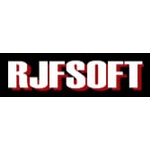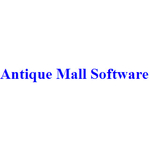TechnologyCounter provides genuine, unbiased real user reviews to help buyers make informed decisions. We may earn a referral fee when you purchase through our links, at no extra cost to you.
List of Best Consignment Software
Showing 1 - 7 of 7 productsAravenda is a software designed to streamline your business operations and increase productivity. Providing innovative solutions to modern-day challenges, Aravenda is the ideal tool for businesses of all sizes. With its user-friendly interface and cu...Read Aravenda Reviews
Quail is a all-in-one software solution for your business needs. With its user-friendly interface is a features, Quail streamlines your daily operations and boosts productivity. Say goodbye to tedious tasks and hello to seamless management with Quail...Read Quail Reviews
ConsignmentTill is a and user-friendly software designed for consignment shop owners. Say goodbye to hours of manual inventory management and cash register headaches. With ConsignmentTill, streamline your business operations and easily track sales, c...Read ConsignmentTill Reviews
SimpleConsign is a software designed to simplify consignment management for businesses of all sizes. With its user-friendly interface is a features, SimpleConsign streamlines inventory tracking, sales tracking, and customer management, making it the...Read SimpleConsign Reviews
LogyTrak is a cutting-edge software solution that allows businesses to efficiently track the movement of their shipments, assets, and vehicles in real-time. Developed for the transportation industry, LogyTrak utilizes advanced technology to provide...Read LogyTrak Reviews
Antique Mall Accounting is a solution designed to streamline and simplify the financial management process for antique malls. With powerful features and user-friendly interface, this software helps businesses stay organized and maximize their profits...Read Antique Mall Accounting Reviews
Liberty4 Consignment is a solution for consignment store owners. Designed to streamline operations and boost efficiency, Liberty4 Consignment offers a user-friendly platform with powerful features to manage consignments, sales, inventory, and more. S...Read Liberty4 Consignment Reviews
- What Is Consignment Software?
- Top Reasons Why Businesses Need Consignment Software?
- What Are the Top Key Features of Consignment Software?
- What Are the Top Benefits of Consignment Software?
- What Are the Steps to Choose the Right Consignment Software?
- What Are the Types of Consignment Software for Different Industries?
- What Are the Technology Trends for Best Consignment Software?
- What Are the Deployment Options for Consignment Software?
What Is Consignment Software?
Consignment software is used to store and track inventory that belongs to other businesses or people. It keeps track of any products sold or obtained from third parties, allowing you to see who owns what and when it is due to be returned.
The best consignment software also aids in the management of all parts of the consignment process, such as pricing things, managing sales and payments, and even dealing with returns. This makes managing several accounts and keeping track of their assets considerably easier. Retailers, manufacturers, and other stakeholders who routinely participate in consignment arrangements can use online consignment software.
The consignment system software can also be used to keep track of objects that have been exchanged, borrowed, or saved for future use. Businesses can use this software to ensure that their property is constantly protected and accounted for.
Top Reasons Why Businesses Need Consignment Software?
1. Consignment software enhances the visibility and precision of sales transactions, empowering firms to get comprehensive information regarding the specifics of product purchases and deliveries, including the what, where, and when.
2. The implementation of consignment management software procedures decreases the reliance on manual tasks and enhances precision, hence resulting in enhanced customer service.
3. Additionally, best consignment software optimizes the process of order management, allowing firms to effectively monitor and trace orders from the initial purchase order stage to the final delivery stage.
4. The use of web based consignment software facilitates the monitoring of product transactions, enabling firms to efficiently ascertain the details of purchases, rentals, exchanges, and returns.
5. The utilization of a consignment management system provides organizations with a current and accurate depiction of their inventory. This enables them to effectively manage reorder points, hence minimizing the occurrence of empty shelves and consequent loss of sales.
6. Automated web based consignment software facilitate the management of accounts receivable procedures, thereby mitigating discrepancies and minimizing the necessity for manual data input.
7. Online consignment software has the capability to facilitate the establishment of customer loyalty programs, thereby granting customers the opportunity to avail themselves of discounts or exclusive offers.
8. Businesses have the ability to combine their consignment system software with their accounting software, which allows for enhanced financial control.
9. The utilization of this system enables enterprises to effectively monitor and record the expenses related to consigned merchandise, encompassing freight fees, discounts, and payment conditions.
10. The best consignment software effectively manages security, recalls, discounts, and disputes by maintaining accurate records of all consigned goods.
11. The implementation of automated tracking and alarm systems allows organizations to enhance their ability to meet consumer needs by effectively monitoring and managing orders that exceed or fall below capacity levels.
12. Businesses have the capability to produce automated messages in order to warn clients when their consignment products are approaching depletion.
13. The identification of potential hazards associated with consignments enables organizations to proactively mitigate the occurrence of fraudulent activities.
14. The data analysis aids organizations in efficiently identifying prospective earnings.
15. The use of this measure guarantees that businesses maintain adherence to the rules and regulations that are specific to their locality.
What Are the Top Key Features of Consignment Software?
1. Tracking: The utilization of consignment software facilitates the efficient monitoring of individual inventory items, enabling the identification of instances where inventory has been either sold or returned.
2. Automated Invoicing and Payments: The inclusion of automated invoicing and payment processing functionalities facilitates the streamlined generation of invoices for outstanding payments and the monitoring of payment receipt status.
3. Reporting: The purpose of this task is to create comprehensive reports that enable the monitoring of consignor performance, identification of revenue patterns, and tracking of inventory expenses.
4. Security: The utilization of consignment software provides users with the ability to customize security elements, thereby ensuring the protection of customer data.
5. Mobile Access: Users are able to conveniently monitor consignor performance in real time by accessing their inventory across many devices.
6. Performance Analytics: Conduct a comprehensive examination of performance metrics and implement strategies to enhance consignor relations.
7. Multi-Language Support: The capacity to localize software into many languages in order to cater to customers in different countries.
8. Scalability: The implementation of scalable technology facilitates the expansion of one's business by accommodating an increasing number of consignors that join the platform.
9. Multi-Currency Support: The inclusion of several currencies facilitates the provision of services to a global consumer base.
10. Online Marketplace Integration: Effortlessly incorporate with one's own website or prominent third-party marketplaces for the purpose of listing and effectively managing inventory.
What Are the Top Benefits of Consignment Software?
1. Cost Savings: The utilization of consignment software in enterprises offers cost-saving benefits through the elimination of manual paperwork, substantial reduction of inventory carrying expenses, and the optimization of collection operations.
2. Improved Inventory Management: The utilization of the best consignment software enables firms to access real-time inventory data, facilitating enhanced product shipment tracking capabilities and the generation of more precise client invoices.
3. Increased Visibility: The utilization of consignment management software allows business proprietors to have a comprehensive understanding of their inventory, including the precise products being sold, their respective pricing, and the corresponding places or regions where these transactions occur.
4. Increased Efficiency: The utilization of online consignment software facilitates the elimination of labor-intensive manual procedures, hence enabling firms to achieve expedited processing durations.
5. Simplified Accounting: The utilization of consignment management software streamlines the process of accounting and enables firms to efficiently produce reports and monthly statements.
6. Automation: The implementation of automated systems for invoicing and payment processing greatly facilitates the operational procedures of enterprises, enabling them to efficiently handle incoming orders while optimizing time management.
7. Easy Recording: The utilization of consignment software facilitates the storage of historical data, hence streamlining the process of comparing present performance with past performance.
8. Lessen Business Risk: The utilization of consignment software enables firms to mitigate operational risks by anticipating a reduction in errors and anomalies.
9. Adaptability: The adaptability and customization of consignment management software make it very suitable for meeting the individual requirements of various businesses.
10. Customer Service Enhancements: Consignment management software facilitates efficient tracking of customer service orders and enables prompt responses to consumer enquiries for businesses.
What Are the Steps to Choose the Right Consignment Software?
1. Identify business needs: The initial stage in the process of choosing consignment software involves the identification of the business's requirements. Please take into account the nature and quantity of the shipments that your company manages. This enables individuals to select a system that aligns with their own needs and is customized to their respective industry.
2. Evaluate features: This study aims to examine the characteristics of different consignment management software options and assess their respective functionalities. It is imperative to ensure that the selected system adequately addresses the comprehensive requirements of the organization and offers appropriate support for the various consignment types managed. Please take into account functions such as the generating of invoices, tracking of invoices, automatic processing of payments, and printing of receipts.
3. Compare prices: In order to ensure the selection of a software system that aligns with the financial constraints of a business while yet providing the necessary functionality, it is imperative to undertake a comparative analysis of the prices offered by various software providers.
4. Test systems: It is advisable to conduct tests on the various systems to ascertain their compliance with your expectations. Consignment management software is advisable to seek substantiation of customer support and responsiveness from the service provider in order to ascertain the provision of continued assistance.
5. Get references: Engage in communication with other enterprises that might employ the software in question in order to obtain references and gather customer feedback. Ensuring the functionality of the software as advertised is of paramount significance.
6. Make a selection: Formulate a decision based on the data collected. It is advisable to thoroughly examine the terms and conditions of the service provider to ascertain their acceptability and to verify the absence of undisclosed fees or constraints. After the decision has been made, proceed with the implementation of the software and closely observe its performance.
What Are the Types of Consignment Software for Different Industries?
Consignment software refers to a software application designed to monitor and manage the inventory of various products across several retail outlets, storage facilities, or other designated premises. The software can be customized to align with the unique requirements of the industry in question.
There exists a diverse range of consignment software applications tailored to cater to the specific needs of distinct businesses.
1. Retail: Retail consignment software is a technological tool that facilitates the efficient management of inventory and accounting processes associated with the sale of products within retail establishments. The system possesses the capability to monitor and record pricing fluctuations, inventory quantities, and financial documents, while also facilitating seamless inter-store inventory transfers for enterprises.
2. Logistics: Logistics consignment management software is employed for the purpose of monitoring and managing various aspects of shipments, deliveries, and other logistical operations. The implementation of logistics software has the potential to enhance inventory management processes through automation and enable real-time tracking of shipments. Additionally, it has the capability to optimize administrative tasks by streamlining paperwork procedures.
3. Hospitality: Hospitality consignment software is specifically developed to cater to the needs of hotels and resorts, facilitating efficient management of cleaning operations and scheduled maintenance tasks. Additionally, it has the capability to gather data regarding visitor preferences and feedback, while also aiding in the management of reservations.
4. Food and Beverage: The utilization of food and beverage consignment management software facilitates the efficient management of inventories pertaining to both raw materials and finished goods. In addition, it has the capability to monitor inventory levels in warehouses, as well as oversee modifications to recipes and pricing.
5. Manufacturing: The purpose of manufacturing consignment software is to optimize production operations, specifically through enhancing the management of materials and inventory. Additionally, it has the potential to contribute to product tracking and enhance quality control processes.
What Are the Technology Trends for Best Consignment Software?
The technology trends for best consignment software are as follows:
1. Cloud-based Software: Cloud-based consignment software offers owners the advantage of expedited processing time and the ability to access real-time data from any location.
2. Automation: Automation plays a pivotal role in enhancing operational efficiency and mitigating the occurrence of human errors. Automated systems have the capability to effectively handle and revise pricing, issue reminders to consumers regarding overdue payments, and alert staff members upon reaching specific levels.
3. Mobility: The utilization of mobile consignment management software is experiencing a growing trend among businesses seeking to effectively oversee their consignment stores while on the move, while also enhancing the consumer experience. The utilization of mobile consignment software encompasses a range of functionalities, including but not limited to the tracking of inventories, processing of payments, and management of customer accounts.
4. Analytics: The use of consignment system software equipped with analytics capabilities enables store proprietors to effectively monitor patterns, gain insights into customer behavior, enhance operational procedures, and augment sales figures.
5. Security: Cloud-based solutions provide store owners with the additional benefit of enhanced security through the utilization of powerful encryption methods, which serve to safeguard customer data and transactions.
What Are the Deployment Options for Consignment Software?
Deployment options for consignment system software are as follows:
1. Cloud-based deployment: This particular deployment strategy is dependent on the utilization of third-party cloud providers for hosting software as a service, wherein data is stored and managed in a remote location.
2. On-premises deployment: This alternative involves the installation and maintenance of consignment software within the organization, where the responsibility for managing the software's architecture and uptime lies with the customer or their IT department.
3. Hybrid deployment: This particular deployment strategy employs a combination of on-premises and cloud-based components in order to offer a versatile and economically efficient approach to attaining the intended objectives of consignment software.







